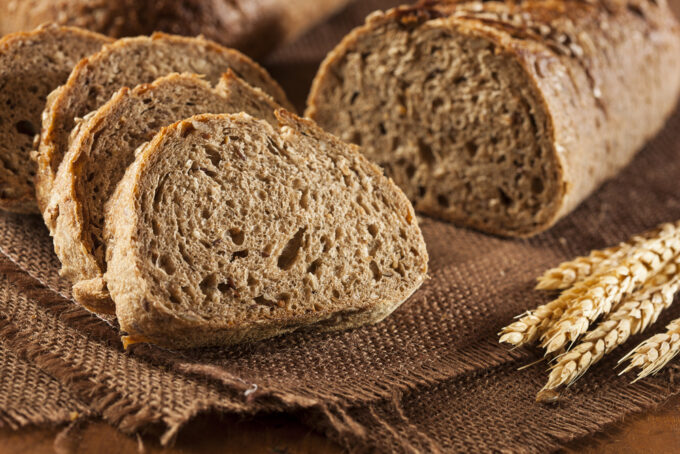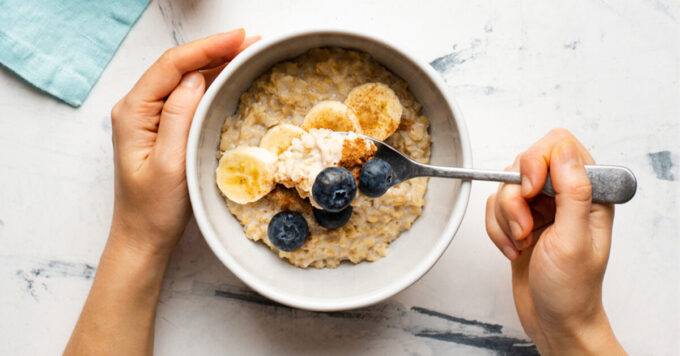If you are wondering whether your diet is affecting your mental and physical health, keep reading. It might be a good idea to make some adjustments. This can be rewarding for your overall health.
We’ll go over the ten points brought up by experts. One of ideas is that the lack of eating may also affect your physical and mental health. Thus, it can lead to eating disorders.
If you are looking to learn more about your diet and what it can do for you (positive or negative), keep reading. Let’s get started with the list now.
1. Self-image issues can affect eating patterns

Source: abc.net.au
Someone may be concerned about their self-image. One major reason is they want to look their best. They might think they have gained weight and feel undesirable.
Thus, they have the desire to eat less in hopes to reach a lower weight. It may get to the point where they might not eat all the time. Or they may induce vomiting after eating each meal.
That’s why it is important to maintain a healthy diet and exercise regularly. Especially when they want to maintain a healthy weight and look their best.
2. Stress eating can lead to unhealthy weight gain
It’s bad enough that obesity has been a long-standing issue. Plus, it can increase the number of obesity cases in the United States. Furthermore, eating as a way to cope with stress can be risky.
It can even get to the point where they may overeat regularly. A food addiction can even develop. That’s why it’s a good idea to find healthy coping mechanisms such as practicing regular mindfulness.
If you or someone you know needs help with stress eating, you can contact OceanRecovery for more information.
3. A poor diet can lead to various health problems

Source: muscleandfitness.com
Staying on the topic of obesity, it can be linked to various health conditions. This includes but is not limited to heart disease, diabetes, mobility issues, and others issues. Those are the negative physical effects of a poor diet.
To that end, you may find yourself dealing with poor self-image issues. You might feel like you’re not enough or desirable. You may feel like people are going to look at you in a negative light.
Yes, obesity can not only affect you physically, but also mentally. Yet, you can make the changes to your diet and exercise regularly (as we have mentioned earlier). If you are not considered in the ‘obese’ category, be sure to watch what you eat so you don’t risk any health issues that may arise.
If you are underweight, you’ll want to consider adjusting your diet plan so you are eating more. Including a healthy diet that includes your daily value of vitamins, minerals, and protein will be the best start.
4. There are plenty of diets for that will be helpful for mental health
Did you know that there are certain diets that will be great for mental health? That’s right, if you are dealing with certain mental issues, an adjustment in your diet can make things manageable.
For example, if you are dealing with depression, you should consider the Mediterranean Diet. This includes an abundant amount of fruits, veggies, fish, nuts, and dairy products among others. However, this also includes excluding baked goods, sweets, soft drinks, fried foods, and processed meats.
If you are dealing with anxiety, you can limit or get rid of sugar, alcohol, and caffeine. You can switch it out for fruits and veggies along with unsaturated fats.
5. Whole grain and fibers are great

Source: theingredienthouse.com
In one study, 3000 people were eating foods that resulted in a higher intake of dietary fiber. What this did was lower the risks of psychological stress. This also included the risks of depression and anxiety.
On top of that, it can also improve the relationship between your stomach and your brain. This is known as the gut-brain axis. That’s because whole grains have anti-inflammatory properties.
6. It’s great to share a meal with friends and family
Eating with friends or family can be great for you mentally. Social eating is great as you enjoy a great meal while strengthening the bonds of your relationship. You can talk about pleasant topics and make a lot of memories.
Who knows? Spending time with family might be just what you need. Especially when you’ve been dealing with some stress at work or whatever may be bothering you as of late.
7. Introduce probiotics and prebiotics

Source: healthline.com
Yes, these are healthy bacterias that will improve your gut. Once again, this can give that gut-brain axis a boost. Not only that, these can also be able to help you fend off stress and even depression.
Your body responds in a certain way if you are feeling sad or stressed out. Your gut may also not be feeling its best in these situations. However, the prebiotics and probiotics can reduce these bad feelings and thus improve your body’s responses to stress and depression.
8. Make it nutrient rich
There are all kinds of nutrients that you can include in your diet. These include but are not limited to Vitamins A, B, and C, zinc, magnesium, iron, and Omega-3 fatty acids among others. You can find these in many foods including your meats, fruits, and veggies.
Include these in your regular diet and it will be more than enough to make yourself feel good mentally and physically.
9. Antioxidants knock out inflammation

Source: healthline.com
If you are dealing with regular inflammation, it may be a good idea to include foods that are rich in antioxidants. These include but are not limited to green vegetables, berries, and even dark chocolate.
Antioxidants can also do a good job at reducing inflammation. This means lesser episodes and less pain. Not bad, right?
10. Small adjustments can make a huge difference
You can make gradual adjustments over time in terms of your diet. It doesn’t have to be a huge jump. However, these small adjustments can make a huge difference on your mental and physical health.
It will inspire you to continue making changes to your diet and reap the benefits. Start somewhere and work your way up. Before you know it, you’ll be eating much healthier than before.
And that’s something you and your body will be happy with.







